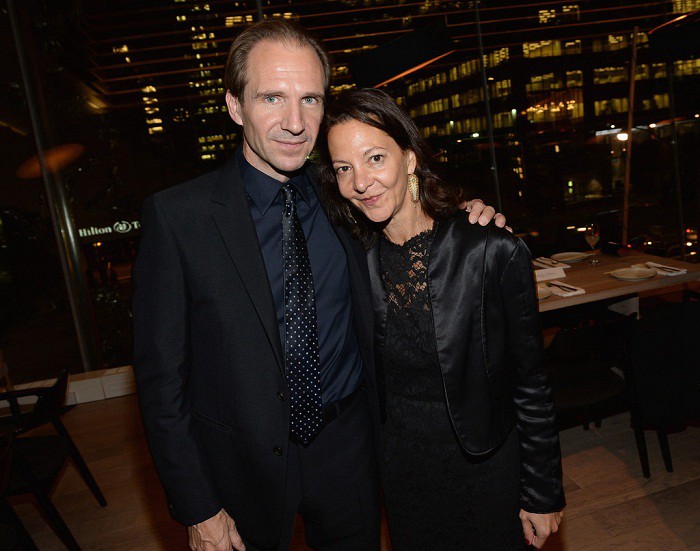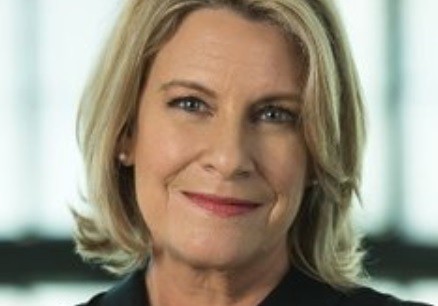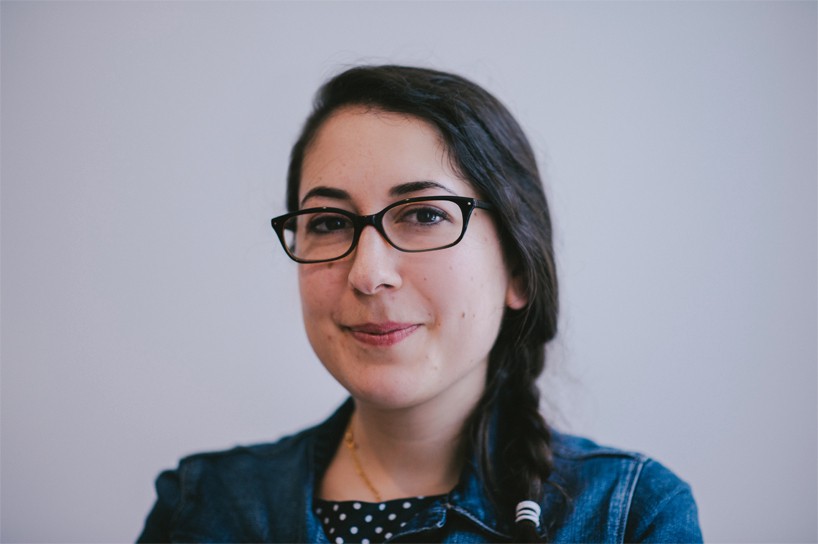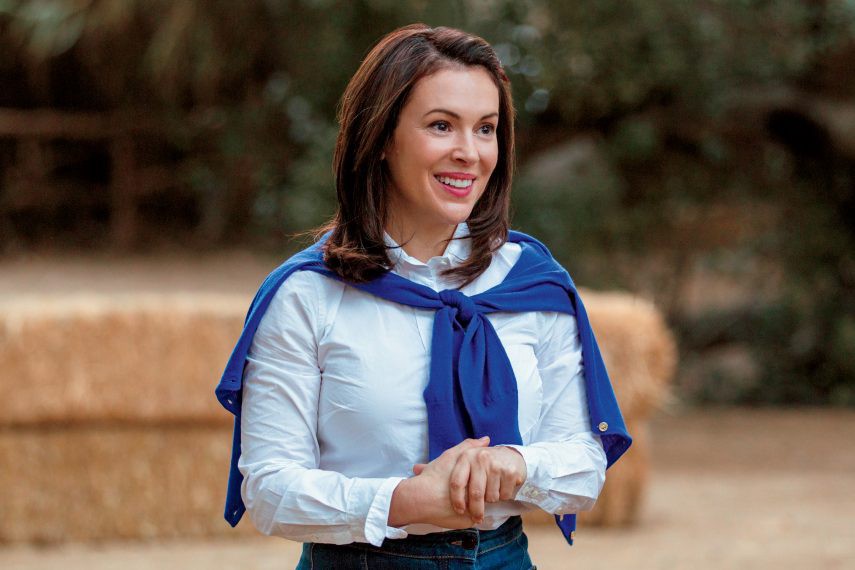Gabrielle Tana’s name made two notable appearances at the London Film Festival — through her New York-based shingle Magnolia Mae, she is the producer (with her partner Carolyn Marks Blackwood) of
Stephen Frears’ crowd-pleaser Philomena and Ralph Fiennes’ eagerly anticipated The Invisible Woman.
Philomena
is the true story of a woman’s search for the child who was taken from her fifty years ago. Written by Steve Coogan, who also plays
spin-doctor-turned-human-interest-journalist Martin Sixsmith (upon whose book the film is based), the film is light of touch, soft of lens, inoffensive and
funny. It will have mass appeal, particularly to the older generation of cinema-goers who have contributed to surprise hits in recent years, The Best Exotic Marigold Hotel particularly comes to mind.
By comparison, The Invisible Woman is serious and foreboding, challenging the audience with its sparse dialogue and slow pace while painting a
darkly glorious picture of Dickensian London and a considered, astute and powerful depiction of the man himself by director Ralph Fiennes. Fiennes’
performance as Dickens has attracted plaudits and admiration. The depiction is, as expected, complex and carefully drawn, simultaneously attractive and
despicable. The eponymous invisible woman is the young lover who was his muse in his later years until his death, Nelly Ternan, played quietly and with
subtlety by Felicity Jones.
Women and Hollywood met Gabrielle Tana to talk to her about both these films and her experiences as a female producer who is hitting the big time:
Women and Hollywood: In your own words, could you describe both of the films that were shown recently in the London Film Festival, Philomena and The Invisible Woman?
Gabrielle Tana: Philomena is a moving and entertaining, heartfelt story about a woman who is coming to terms with something she has kept hidden
from years. It’s a wonderful road movie with Judi and Steve, actually. It’s about that relationship as much as it’s about the other big issues that it
deals with. It’s about how people affect each other.
And The Invisible Woman is an amazing story that was based on Claire Tomalin’s book about Nelly Ternan, who was the mistress of Charles Dickens
during the last years of his life and who was written out of history. He destroyed all evidence of it and her family destroyed all evidence of it. It’s
another amazing portrait of a relationship between two people who deeply affect each other. She also hides her secret and uncovers that secret.
And so there are parallels, funnily enough, even though they’re extremely different movies.
WaH: The parallels are quite striking, particularly between the young Philomena and the young Nelly Ternan — they are both hidden, invisible women…
GT: I think there are lots of stories that go on still and are very similar to the stories of these women. In a recent Q and A, the writer Abi Morgan
referred to it being very likely that there were invisible women in the audience. It is still something that goes on, but society is different in a way.
What is definitely different is opportunity — the opportunities that women have professionally. In Nelly Ternan’s family, they were more emancipated than
most women at their time because they worked in the theatre. The theatre was one of the few worlds where a woman could have a presence and participate.
Even though being an actress was looked down upon, it did give the women some freedom.
WaH: Abi Morgan is a much-lauded screen and television writer in the UK. What was it like to work with her on The Invisible Woman?
GT: A joy. She is so generous and so committed to the work and loves the work. She and Ralph really got along so, so well. She would come to set a lot. For
Ralph to act and direct, Abi’s support was really wonderful. If something wasn’t working he could ask for her help and there she would be.
WaH: Both Philomena and The Invisible Woman are about sexual relationships, but neither has sex scenes, to speak. Did you make active
choices to omit explicit scenes and, if so, are you actively eager to make films that are grown up and for a more mature audience?
GT: With The Invisible Woman it was a really conscious decision on Ralph’s part — it was about restraint and about that time, and being true to
that time. We are making film for entertainment, but what does that mean? We’ve made sophisticated, grown up movies, in a way. I don’t mean it to sound
quite like that — but let’s just say there are no cheap tricks.
WaH: In terms of marketing for sophisticated, grown up movies, has it helped that there is more of recognition of the market for films that appeal to an
older audience? For example, did the success of The Best Exotic Marigold Hotel help when it came to getting these films off the ground?
GT: Definitely — some people call it the Marigold Hotel effect. Although, any film with Judi Dench is a no-brainer, I guess.
WaH: Both Judi Dench and Steven Coogan give incredible performances in Philomena. This is, perhaps, Steve Coogan’s strongest dramatic, or
non-comedic, role to date. Is that in part due to the successful writing and development phase?
GT: I developed the film with Steve. He wasn’t even sure about being in the film in the beginning, but he did want to be taken seriously — either as a
writer or as an actor. He told me that he can’t take meetings without everyone laughing the moment he walks through the door. He’s so smart — he’s so much
more than funny.
WaH: Many of the women with films in the LFF this year are first time directors. The Invisible Woman is Ralph’s second film, but you produced his
first, Coriolanus, two years ago. Comparably, Stephen Frears is an old hand. Can you tell me about the difference of working with a less
experienced director, versus a very experienced director?
GT: These are both extraordinary people. Ralph took his directing debut in Coriolanus extremely seriously — he wanted to be involved in
everything. There was incredible attention to detail, including with the script. Stephen delegates much more and comes out of another tradition, perhaps
because he has been doing it for so long. There was a difference in the way they worked with the actors. Ralph, as an actor, does things that other
directors might not do. Stephen has a knack of pretending he doesn’t know anything when he actually knows everything — it seems chaotic and then suddenly
everything synthesizes. Their styles are so very different.
WaH: There are a number of very successful female produced who have aligned themselves, not necessarily exclusively, with successful directors — Kathleen
Kennedy and Steven Spielberg, JoAnne Sellar and Paul Thomas Anderson, for example. Is your relationship with Ralph Fiennes as a director heading that way?
GT: I’ll help Ralph make any film he wants to make — that’s my best answer.
WaH: You’ve had great success over the last few years, culminating with these two films in the LFF. We know that there are few overnight successes in
Hollywood. Please can you put your career into context for us?
GT: I’ve been working in the business for about 25 years. I started working in production and then worked for Disney in France and then decided to become
and independent producer. I moved from France to New York but was always working on films in Europe, not in the States. The first film I did as an
independent producer was a European co-production that involved France and Germany, called Someone Else’s America with Tom Conti and a Serbian
director, Goran Paskaljevic. That film took me to New York and I stayed to produce a film for Michael di Jiacomo called Animals with the Tollkeeper — with Mickey Rooney, John Turturro, Tim Roth and Mili Avital — which went to Sundance.
After that I started developing The Duchess with Amanda Foreman, which took a long time — people have said it was like incubating an elephant. We
had numerous directors attached to it and went far with Susanne Bier — even though she eventually ditched me, but she did some wonderful work on the
project and so I’m eternally grateful! Then Saul Dibb directed it and I forged a relationship with Ralph on that film.
WaH: Do you have any particular advice for female feature directors who would like to find their project on your development slate?
GT: Great stories. It is always about great stories.
WaH: Do you have any favourite women directors?
GT: Susanne Bier is great. And I love Andrea Arnold’s work — she’s an extraordinary filmmaker. Jane Campion as well.
WaH: Do you have any thoughts on the challenges ahead in terms of distribution and new distribution models?
GT: Video on demand is definitely the way forward, I think. And I urge young people to protect cinema by not pirating things and illegally downloading
things. We won’t be able to do this if people don’t pay for it — that needs to be understood. When you learn that your film can be watched on the internet
before you’re ready, it is painful.
Philomena
is on general release in the UK from 1st November, 2013.
The Invisible Woman
will be released in the UK in early 2014.







